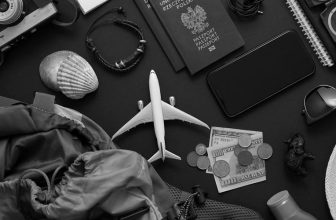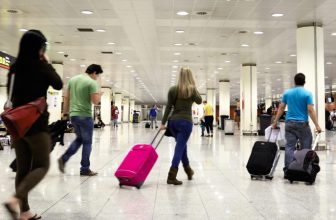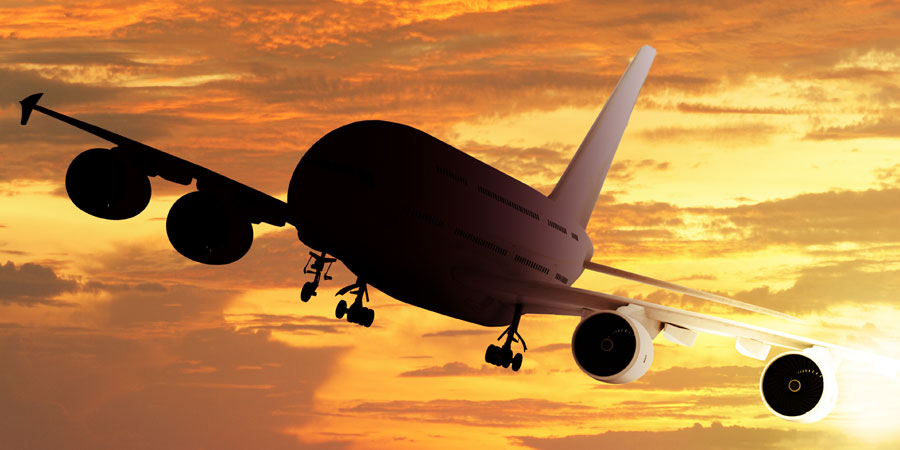
Air travel is a convenient and fast way to reach your destination but comes with challenges. Whether you’re flying domestically or internationally, preparing thoroughly can make your journey smoother. A stress-free trip requires careful planning, from booking tickets to packing essentials, handling airport procedures, and following safety guidelines.
This article overviews the most important things to consider during air travel. Air travel tips are designed to help all kinds of travelers—whether frequent flyers, students, or occasional vacationers—have a seamless journey. Understanding the critical aspects of air travel will reduce last-minute stress and help you make the most of your trip.
Why Do Tourists Fly?
Air travel offers several benefits that make it the preferred mode of transportation for many. The primary reasons tourists choose flights are the speed and convenience, especially for long-distance travel. A flight that takes a few hours could save days compared to other modes of transportation.
Airlines also offer various services and comforts, such as in-flight meals, entertainment, and Wi-Fi, making the journey more enjoyable and less tedious. Additionally, flying allows easy access to international destinations, enabling travelers to explore new cultures, landscapes, and experiences. Many tourists take advantage of loyalty programs that offer miles and other perks.
Moreover, low-cost carriers and competitive pricing make air travel more affordable, allowing you to explore more destinations within your budget. Business travelers rely heavily on flights to manage their work commitments efficiently. Whether for leisure or business, air travel is essential for modern tourists, offering unparalleled convenience and accessibility.
Top 20 Things to Note While Traveling by Air
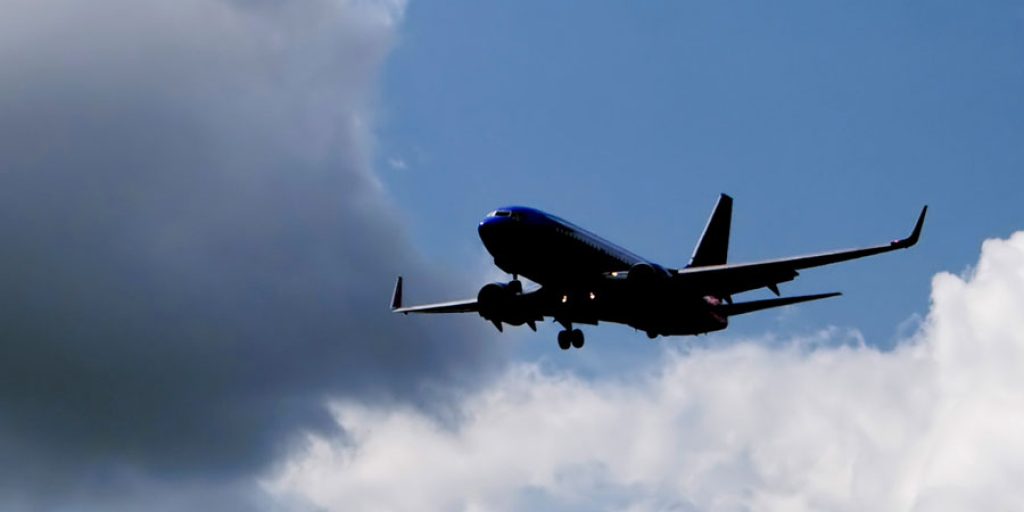
Booking Tickets in Advance
Booking tickets early offers several advantages. Airlines usually release their cheapest fares months in advance, and waiting until the last minute can increase prices. Planning also gives you more flexibility in choosing flight times and seats. Use fare comparison tools to track ticket prices over time or set alerts for price drops. This strategy ensures you avoid peak fare hikes, especially during holidays or weekends. Additionally, bookings help you secure flights on preferred airlines or direct routes, minimizing the need for inconvenient layovers. Travelers with specific preferences, like window seats or extra legroom, benefit from early bookings as these seats often sell out quickly.
Booking well in advance is also essential for international travel, where visas or other paperwork are required. If your plans change, most airlines allow free changes or cancellations within 24 hours of booking. Early reservations also give you time to arrange accommodation and transportation for your destination.
Checking Airline Baggage Policies
Checking Airline Baggage Policies are another air travel tips for you, which will help you to easy travel. Understanding an airline’s baggage policy is crucial to avoid extra fees and airport hassles. Different airlines have varying weight and size restrictions for carry-on and checked luggage. Some budget airlines charge separately for checked bags, while others offer allowances for specific ticket types. Overweight luggage can attract steep fees, so weighing your bags before leaving home is essential. Additionally, certain items, such as sharp objects or large liquids, may not be allowed in carry-ons.
It’s helpful to organize your belongings based on the airline’s limits to avoid last-minute repacking at the airport. Knowing the baggage rules ensures you have enough space for souvenirs on the return trip without exceeding weight limits. For international flights, be mindful of the baggage allowances on connecting domestic flights, as they may differ. Always label your luggage with your contact information in case of lost or delayed baggage.
Packing Essentials and Avoiding Prohibited Items
Efficient packing makes air travel much smoother. Create a checklist to ensure you don’t forget essentials such as travel documents, medications, and chargers. It’s best to pack light, prioritizing versatile clothing to accommodate different weather conditions. Toiletries must follow the 3-1-1 rule, which limits liquids to 3.4 ounces (100) or fewer containers placed in a single quart-sized bag.
Prohibited items—such as sharp objects, aerosols, and flammable materials—must be left out to avoid security issues. Pack valuable items, electronics, and documents in your carry-on for easy access. Packing cubes or compression bags helps organize your belongings efficiently, especially for long trips. Remember to include essential travel adapters if traveling internationally. Finally, always double-check the airline’s rules about lithium batteries or electronics to prevent any surprises at the airport.
Arriving Early at the Airport
Arriving at the airport early ensures you have enough time for security screening, check-in, and boarding. For international flights, arriving 3 hours in advance is recommended, while domestic flights typically require you to be at the airport at least 2 hours early. This buffer helps you avoid the stress of rushing through crowded terminals or dealing with unexpected delays.
Online check-in can save time, but you must still drop off luggage and go through security. Some airports are more significant and may require extra time to navigate between terminals. Additionally, airport lounges are accessible only after passing security, so arriving early allows you to relax and enjoy refreshments before your flight. If you’re traveling during peak seasons or with a large group, arriving early ensures smoother coordination and reduces last-minute anxiety.
Understanding Security Screening Procedures
Familiarizing yourself with airport security procedures helps you move through checkpoints quickly. During screening, passengers are required to remove items like shoes, belts, laptops, and large electronic devices. Liquids must be in containers of 100ml or less and placed in a clear, resealable bag.
Be mindful of restricted items such as sharp objects, oversized liquids, or prohibited electronics, as they can lead to delays or confiscation. You may not need to remove certain items if you have TSA PreCheck or a similar fast-track security program. Traveling with children or individuals with medical needs? Be prepared to declare any medications or baby formula at the checkpoint. Understanding these procedures ensures you are ready, reducing stress at security.
Keeping Travel Documents Handy
Having all essential travel documents easily accessible is crucial during air travel. Important documents include your passport, boarding pass, visa (if applicable), and government-issued identification. Travelers can use travel wallets or organizers to store these items safely and avoid misplacing them. Digital boarding passes or copies of important documents on your phone can act as backups, but some countries may still require printed versions for immigration.
It’s also a good idea to carry additional identification, such as a driver’s license, especially if you need to rent a car at your destination. For international travel, ensure your passport is valid for at least six months beyond your return date, as many countries enforce this requirement. Keeping your travel documents handy will help you clear security, customs, and immigration efficiently. Double-checking your visa requirements before departure ensures you won’t face issues at the border.
Downloading Airline Apps
Most airlines offer mobile apps that simplify the travel experience. Passengers can check flight statuses, complete online check-ins, and receive gate change notifications through these apps. Many apps also allow passengers to download boarding passes directly to their phones, eliminating the need for printed copies.
Using an airline app helps you avoid long lines at kiosks and counters, especially when traveling light with just a carry-on. Some apps even provide in-flight entertainment options, allowing passengers to stream movies or shows during the flight. Additionally, you can receive real-time updates about delays, cancellations, or baggage issues. Having your airline’s app downloaded in advance ensures you’re always connected and prepared for unexpected changes.
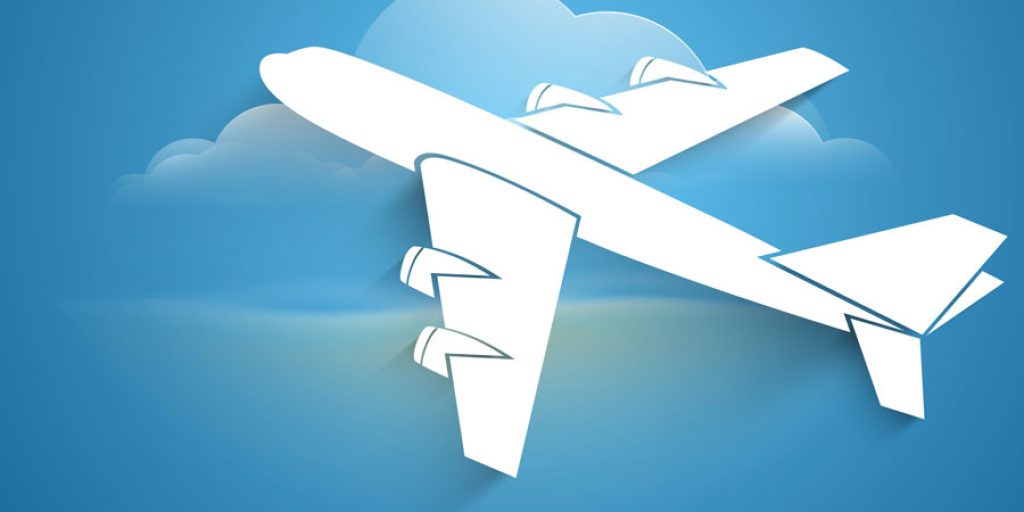
Staying Informed About Flight Status
Monitoring your flight status is crucial to avoid unexpected delays or cancellations. Airlines often notify travelers of changes through apps or emails, but checking the status yourself before leaving for the airport is wise. Unforeseen circumstances, such as bad weather or mechanical issues, can impact flight schedules.
You can make alternative arrangements by staying updated, such as rebooking flights or adjusting connecting travel plans. Flight tracking websites and apps provide real-time information, including estimated departure times and gate assignments. It’s also a good idea to sign up for text or email alerts from your airline to stay informed about last-minute changes.
Selecting the Right Seat
You will also get more exciting air travel tips for relaxing travel. Choosing the right seat can significantly enhance your travel experience. An aisle seat is ideal if you prefer more legroom or quick access to the aisle. Window seats are better for those who enjoy scenic views or prefer a quiet space. Bulkhead and emergency exit row seats offer extra legroom, but some may have restrictions or additional fees.
Families traveling with children should consider seats near the front for easy boarding and deplaning. Many airlines allow seat selection during booking, though budget carriers may charge a fee for this service. If you’re on a long flight, consider your proximity to restrooms and meal service areas. Being strategic about seat selection ensures a comfortable and hassle-free flight.
Handling Jet Lag Effectively
Jet lag can disrupt your sleep cycle and affect your energy levels after long flights. To minimize its effects, try adjusting your sleep schedule a few days before your trip to align with the destination’s time zone. Staying hydrated during the flight is crucial, as dehydration can worsen fatigue. Avoiding alcohol and caffeine helps maintain better sleep patterns.
If possible, get sunlight upon arrival to reset your body’s clock. Short naps can be helpful, but avoid sleeping for long periods during the day to adjust more quickly. Sleep aids such as eye masks and earplugs on the flight can also help you rest. Managing jet lag effectively allows you to enjoy your destination fully from the moment you land.
Bringing Snacks and Water
While most flights offer in-flight meals or snacks, carrying your food ensures you’re prepared for delays. Pre-packaged snacks like nuts, granola bars, or fruit are convenient and travel-friendly. Some airlines restrict certain foods, so reviewing the rules before boarding is essential.
Having a refillable water bottle is also beneficial. Many airports have water stations where you can fill up after passing through security. Staying hydrated during the flight helps prevent fatigue, especially on long journeys. Snacks and water benefit travelers with dietary restrictions, ensuring they have suitable food options.
Dressing Comfortably for the Flight
Wearing comfortable clothing is essential for a pleasant flight experience, especially on long-haul journeys. Opt for breathable fabrics like cotton or linen to stay comfortable throughout the trip. Layers are helpful since airplane cabins can vary in temperature. A light jacket or sweater ensures you stay warm if it gets chilly, and it can double as a pillow during the flight.
Comfortable shoes are also a must, as you’ll likely need to walk long distances through airport terminals. Avoid tight or restrictive clothing that may cause discomfort during long periods of sitting. Wearing compression socks can help improve circulation and reduce the risk of swelling or blood clots. Dressing comfortably ensures you arrive at your destination feeling relaxed and refreshed.
Using Noise-Canceling Headphones
Noise-cancelling headphones are an essential travel tool, especially for long flights. They block out ambient noise, such as engine sounds and cabin chatter, providing a more peaceful environment. Many travelers use them to watch movies, listen to music, or relax with audiobooks.
If you’re a light sleeper, noise-cancelling headphones can help you rest better during the flight. Some airlines offer in-flight entertainment requiring headphones, so bringing a pair ensures you’re prepared. Wireless models are convenient, but a wired option is also wise, as some planes may not support Bluetooth connectivity. Investing in quality headphones enhances comfort and reduces stress during air travel.
Stretching and Moving During Long Flights
Sitting for extended periods on long flights can lead to stiffness and circulation issues. Staying, stretching, and moving periodically is essential to stay comfortable and prevent health problems like deep vein thrombosis (DVT). Simple exercises like rotating your ankles, flexing your feet, or taking short walks to the restroom can improve circulation.
Many airlines recommend stretching every hour during long-haul flights. Some planes offer extra space near exits or galleys, where passengers can stand and move around. Staying active during the flight helps you feel refreshed upon arrival and reduces the risk of muscle stiffness or swelling.
Keeping Devices Charged and Entertainment Ready
Modern travelers rely on electronic devices for entertainment, communication, and navigation. You must bring portable chargers or power banks to ensure your devices stay charged throughout the flight. Some aeroplanes offer USB ports or power outlets, but airline and aircraft type availability vary.
Before boarding, download movies, e-books, or music to enjoy offline, as in-flight Wi-Fi can be limited or expensive. Bringing headphones and adapters ensures you’re prepared for any entertainment setup on the plane. Keeping your devices charged and ready ensures a pleasant travel experience, especially on long or delayed flights.
Using In-Flight Wi-Fi Wisely
Many airlines now offer in-flight Wi-Fi, but speed and data are often limited. Some flights provide free messaging services through apps like WhatsApp or iMessage, while others charge for full internet access. Check your airline’s Wi-Fi policies in advance to see available options.
If you need to work or stay connected during the flight, download large files beforehand, as in-flight networks may struggle with high-bandwidth activities. Some airlines offer tiered plans—basic packages for messaging and premium plans for streaming or browsing. Using Wi-Fi wisely ensures you stay productive or entertained without incurring unnecessary costs.
Managing Connecting Flights
If your trip involves layovers or connecting flights, planning carefully is essential to avoid missed connections. Leave enough time between flights to accommodate security checks, boarding, and possible delays. Airports vary in size—what might seem like a comfortable layover at one could be tight at another.
Familiarize yourself with the layout of transfer airports to determine how much time you need to get from one gate to another. If possible, stick to the exact airline or alliance to simplify baggage transfers. Keeping track of gate information through apps or airport screens ensures smooth transitions. In case of delays, stay in touch with airline representatives to rebook or get assistance promptly.
Understanding Airline Cancellation Policies
Airline cancellation and change policies vary; knowing your options can save money and stress. Some airlines allow free cancellations or modifications within 24 hours of booking, but others charge fees for any changes. Flexible or refundable tickets provide more leeway but are often more expensive.
Travel insurance can also protect you from unexpected disruptions, such as illness or severe weather, that might force you to cancel your flight. If the airline cancels or delays your flight, you may be entitled to compensation, vouchers, or rebooking options. Understanding these policies ensures you’re prepared for any unexpected changes to your travel plans.
Using Airport Lounges
Airport lounges offer a comfortable space to relax before boarding, with amenities such as Wi-Fi, snacks, showers, and workstations. Some lounges are reserved for business or first-class passengers, but many airports offer paid access or lounge memberships.
Accessing a lounge can make the wait more pleasant if you have a long layover or delay. Several credit cards provide complimentary lounge access, so check your card’s benefits before traveling. Lounge access ensures you stay comfortable, refreshed, and productive while waiting for your flight, especially during busy travel seasons.
Preparing for Customs and Immigration
Navigating customs and immigration efficiently is crucial for international flights. To speed up the process, ensure you have completed any required customs forms before landing. Be prepared to declare food, alcohol, or expensive goods, as certain items may be restricted or subject to taxes.
Some countries offer automated kiosks for faster immigration clearance, a feature that can significantly expedite your entry process and leave you feeling optimistic about your journey. If you’re traveling with large amounts of cash, review the declaration requirements to avoid issues. Your accommodation details and return ticket are ready, as immigration officers may ask for them. Being well-prepared ensures a smooth entry into your destination country.
20 Most Common Questions and Answers About Air Travel
1. How early should I arrive at the airport?
Arrive 2-3 hours before departure for international flights and 1-2 hours for domestic ones.
2. Can I carry food on a flight?
Yes, but ensure it follows airport security rules and your airline’s policy.
3. What if my flight gets delayed?
Stay updated through the airline app, and check for any compensation policies if delays are significant.
4. Are liquids allowed in carry-on luggage?
Yes, but they must be in containers under 100ml and a clear plastic bag.
5. What documents are needed for international flights?
A passport, visa (if required), and boarding pass are essential.
6. How do I manage jet lag?
Adjust your sleep schedule before travel, stay hydrated, and avoid alcohol.
7. Can I carry power banks on a plane?
Yes, but they should be in carry-on luggage, not checked baggage.
8. What happens if I miss my flight?
Contact the airline immediately to explore rebooking options.
9. Can I select my seat in advance?
Yes, many airlines offer seat selection during booking, often for a fee.
10. Is Wi-Fi available on all flights?
Some airlines offer in-flight Wi-Fi, but availability varies by carrier and route.
11. How much hand luggage is allowed?
It depends on the airline, but one carry-on bag and a personal item are generally allowed.
12. What to do if my baggage is lost?
Report it immediately at the airport, and keep the baggage claim tag for tracking.
13. Can I bring a laptop on board?
Laptops are allowed in carry-on luggage and must be screened separately at security.
14. What are the benefits of online check-in?
Online check-in saves time, allows you to select your seat, and helps avoid queues at the airport.
15. Are pets allowed on flights?
Some airlines allow pets in the cabin or cargo, but check the specific policy before travel.
16. What items are prohibited in carry-on bags?
Sharp objects, firearms, and certain liquids are generally not allowed.
17. Do all airlines offer meals on flights?
Some provide complimentary meals, while others offer food for purchase.
18. How can I upgrade my seat?
You can request upgrades during check-in or at the gate, sometimes using frequent flyer points.
19. Are face masks still required on flights?
Mask policies vary; check your airline’s requirements before flying.
20. What to do if I feel sick during a flight?
Inform the flight attendants, who are trained to assist with medical issues.
Air travel can be a smooth experience when you plan and prepare thoughtfully. Each step is critical in ensuring a stress-free trip, from booking your flight and packing smartly to staying comfortable. Keeping informed about airline policies, flight statuses, and airport procedures helps avoid surprises. By following these 20 essential air travel tips, you can make the most of your journey—whether traveling for business, vacation, or personal reasons. Bon voyage!





